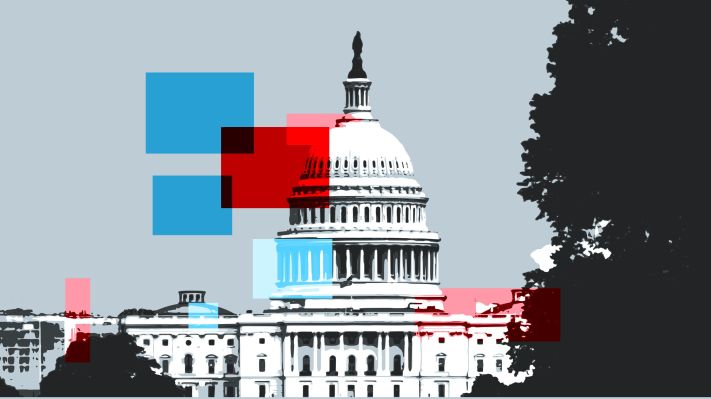Another week, another big tech hearing in Congress. With a flurry of antitrust reform bills on the way, Democratic lawmakers are again bringing in some of the world’s most powerful tech companies for questioning.
In the next hearing, scheduled for Tuesday, April 27 at 10 AM ET, the Senate Judiciary’s subcommittee on privacy and technology will zero in on concerns about algorithmic amplification. Specifically, the hearing will explore how algorithms amplify dangerous content and shape user behavior on social platforms.
The subcommittee’s chair Sen. Chris Coons previously indicated that he would bring in tech CEOs, but Tuesday’s hearing will instead feature testimony from policy leads at Facebook, Twitter and YouTube.
The hearing might prove a unique opportunity to hold YouTube’s feet to the fire. In spite of being one of the biggest social networks in the world — one without much transparency about its regular failures to control extremism and misinformation — YouTube seldom winds up under the microscope with Congress. The company will be represented by Alexandra Veitch, YouTube’s regional director of public policy.
In past big tech hearings, Google CEO Sundar Pichai has generally appeared on behalf of YouTube’s parent company while YouTube’s chief executive Susan Wojcicki inexplicably escapes scrutiny. Google is a massive entity and concerns specific to YouTube and its policies generally get lost in the mix, with lawmakers usually going after Pichai for concerns around Google’s search and ads businesses.
In a stylistic repeat of last week’s adversarial app store hearing, which featured Apple as well as some of its critics, misinformation researcher Dr. Joan Donovan and ex-Googler and frequent big tech critic Tristan Harris will also testify Tuesday. That tension can create deeper questioning, providing outside expertise that can fill in some lapses in lawmakers’ technical knowledge.
Policy leads at these companies might not make the same flashy headlines, but given their intimate knowledge of the content choices these companies make every day, they do provide an opportunity for more substance. Tech CEOs like Mark Zuckerberg and Jack Dorsey have been dragged in to so many hearings at this point that they begin to run together, and the top executives generally reveal very little while sometimes playing dumb about the day-to-day decision making on their platforms. The subcommittee’s ranking member Ben Sasse (R-NE) emphasized that point, stating that the hearing would be a learning opportunity and not a “show hearing.”
Democrats have been sounding the alarm on algorithms for some time. While Republicans spent the latter half of the Trump administration hounding tech companies about posts they remove, Democrats instead focused on the violent content, extremism and sometimes deadly misinformation that gets left up and even boosted by the secretive algorithms tech companies rarely shed light on.
We haven’t seen much in the way of algorithmic transparency, but that could change. One narrowly targeted Section 230 reform bill in the House would strip that law’s protections from large companies when their algorithms amplify extremism or violate civil rights.
Twitter CEO Jack Dorsey has also hinted that a different approach might be on the horizon, suggesting that users could hand-pick their preferred algorithms in the future, possibly even selecting them from a kind of third-party marketplace. Needless to say, Facebook didn’t indicate any plans to give its own users more algorithmic control.
With any major changes to the way platforms decide who sees what likely a long ways off, expect to see lawmakers try to pry open some black boxes on Tuesday.

